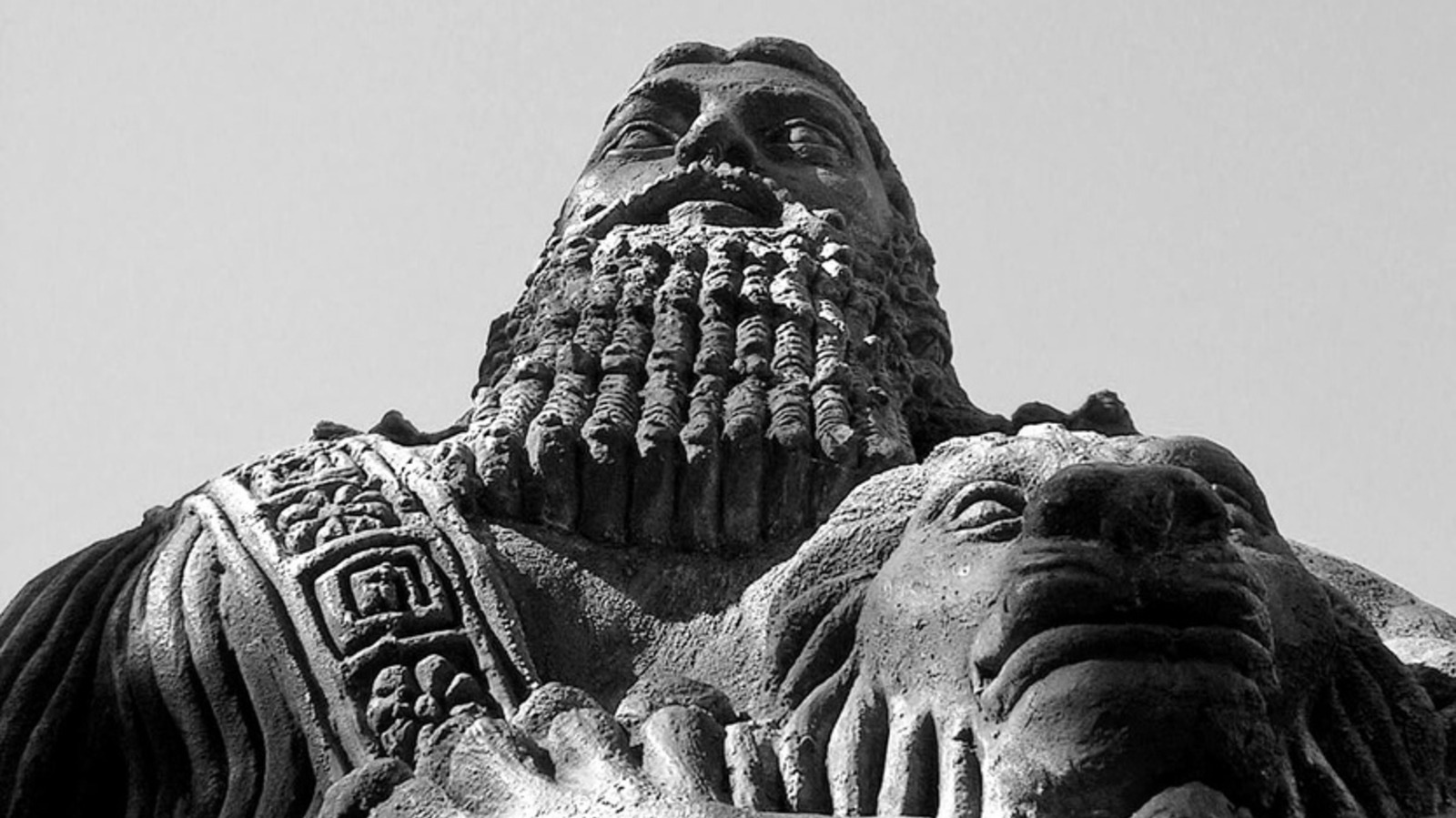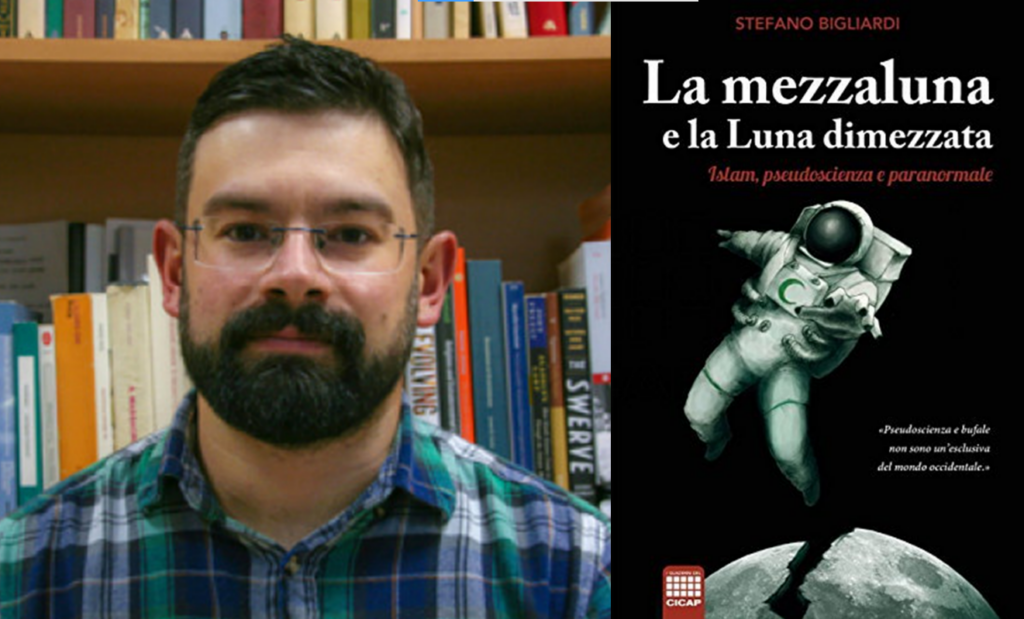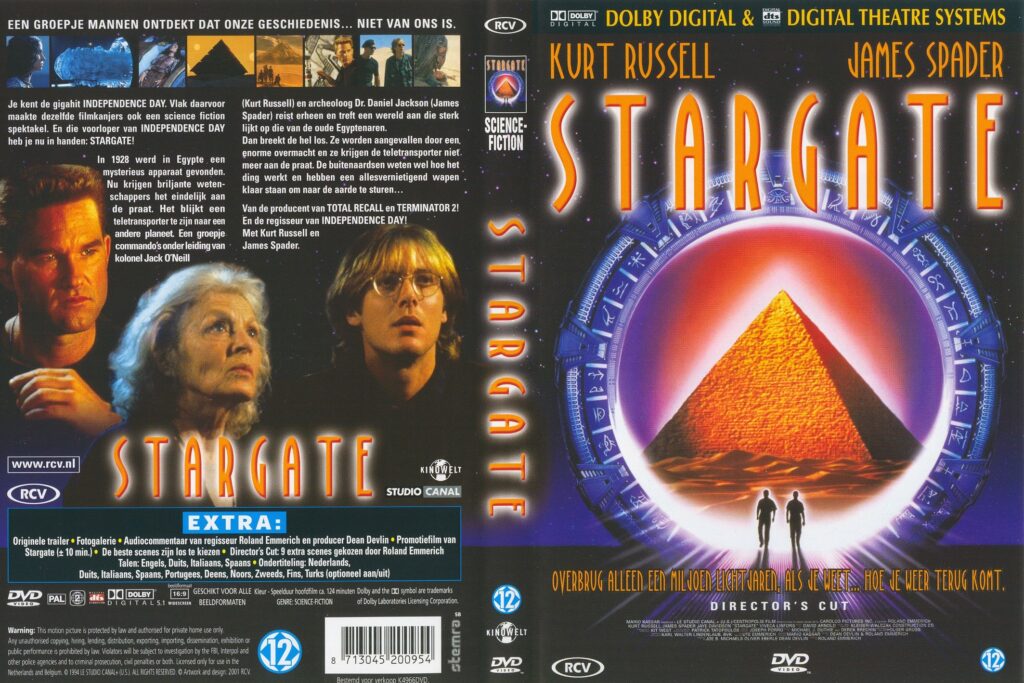
Controversies over the concept of Ancient Aliens have become mainstream among traditional scientists. For the past 8 years, Dr. Stefano has been teaching courses in philosophy and the history of ideas as an associate professor of philosophy at Al Akhawayn University in Ifrane (AUI), Morocco. His chief research interests include modern science in Islam and New Religious Movements, sects, or cults and their relationship with science.
By Emad Aysha
Dr. Stefano has a PhD in philosophy of science from Bologna University, Italy, his original alma mater. He has also worked in Germany for 5 years, Sweden for 3 years, Mexico for a year and a half, and then a year in Switzerland.
How well-developed is the field of ‘ancient aliens’ in academia, and who are the leading lights in the field?
“First of all, we need to dispel a possible misunderstanding. I study ancient aliens, not because I am an archaeologist or philologist who analyses the ruins and texts looking for traces of the ancient aliens.
I study the ancient aliens as a debate, a cultural phenomenon, a narrative many authors promote, and one many people worldwide believe in. I study it from a historian's perspective of ideas – but I also debunk those ancient-aliens-related claims that are logically inconsistent or pseudoscientific.
Indeed, I’m afraid that ideas are all there is to know about ancient aliens because I’m convinced and for good reason, that such ancient aliens never existed! These ideas and narratives are full of inconsistencies and arrived at in a methodologically flawed way. It’s pseudoscience. But still, it’s a fascinating debate from a sociological perspective and a historian's perspective of ideas. It’s interesting to inspect why different authors promote this narrative and why so many believe it.
When I say different authors, please understand that they promote slightly different versions under this label. Some push an anti-religious agenda. Others do not do so. My method is to take one author, read all of his books, and, if possible, all of his articles – it’s not easy, but they are very productive. From there, I trace a map of these ideas and the subplots and sub-narratives of this author.
People I’ve been studying include leading lights such as Frenchman Jean Sendy, Erich von Däniken from Switzerland, Robert Charroux (another Frenchman), and Italian Peter Kolosimo. And most recently, I’ve been studying the British Brinsley Le Poer Trench.”

MAN ON A MISSION: Dr. Stefano is proud to teach at a Liberal Arts institution like AUI, where philosophy and history of ideas is mandatory and where the teaching environment and student discussions about religion are stimulating.
How has the Epic of Gilgamesh been connected to ancient aliens?
“Well, the epic is among the many ancient historical texts cited as containing proofs or traces of extraterrestrials, mighty beings that inhabited the world and interfered with human history and development. Other texts include the Hebrew Bible, the New Testament, Greek mythology, and sacred Hindu texts.
I’m familiar with Zecharia Sitchin's epic of Gilgamesh and older Sumerian texts, but different authors emphasise different texts.
From Italy, Giuseppe M. Cùscito. PhD. His work is exciting because he approaches ancient aliens as a critic with a specific competence in the Hebrew language. This is especially important because a group of the ancient alien story advocates pretend and purport to get these narratives from the Hebrew Bible.
Giuseppe, a colleague and a friend, is also a debunker, YouTuber, and science populariser. It was an honour to work with him.
Marco Ciardi (Il mistero degli antichi astronauti, 2017) is also more a historian than a debunker. A university professor focuses on books and other popular media, including comics.”
You mentioned Erich von Däniken; he is a legend to many who believe in the theory.
“Well, he is critical in the history of this cultural phenomenon. But he’s not very original. The idea was not new when he published his first books. The Italian author Peter Kolosimo had written about the ancient aliens, and he was convinced that von Däniken had plagiarised him, but he was quite angry at him. There were other authors before von Däniken, too, whom he may have read.
The real importance of von Däniken is that he propelled this phenomenon into global visibility. His books sold millions of copies. Even the authors who had written on the topic before him benefited greatly from his impact.
For an expert on von Däniken and his possible plagiarism from other authors, please see Wiktor Stoczkowski's monograph Des hommes, des dieux et des extraterrestres, in French (1999). It’s written from an ethnographic perspective and a history of ideas. The book hasn’t received enough attention internationally, but it’s essential.”

HOLEY SCI-FI: Even when Arab and Muslims don't produce their own science fiction, UFOs pop up in our presence. Actually, rumour has it that this movie was 'adapted' from a Middle East script!
Finally, were you surprised that exotheology and ancient aliens are popular in Arab and Muslim science fiction?
No, I wasn’t surprised. When one studies cultural phenomena like this that have become global, it’s difficult to find something shocking. Ideas move around, and ideas are received and re-elaborated by different authors.
I know a science fiction scene exists in the Arab and Muslim world. Let me mention the scholarship of my colleague and friend, Professor Jörg Matthias Determann (Virginia Commonwealth University in Qatar). Ancient aliens can be considered a branch of science fiction, so if there is SF in the Arab and Muslim world, it is not surprising to find ancient alien theories.
You can find authors who have been linking ancient aliens with the Quran, which may surprise some. However, once a narrative goes global, you will find it connected to different narratives, including religious ones. This is a fascinating phenomenon but not surprising!”
Special thanks to Dr. Jörg Matthias Determann for introducing me to Dr. Stefano.






